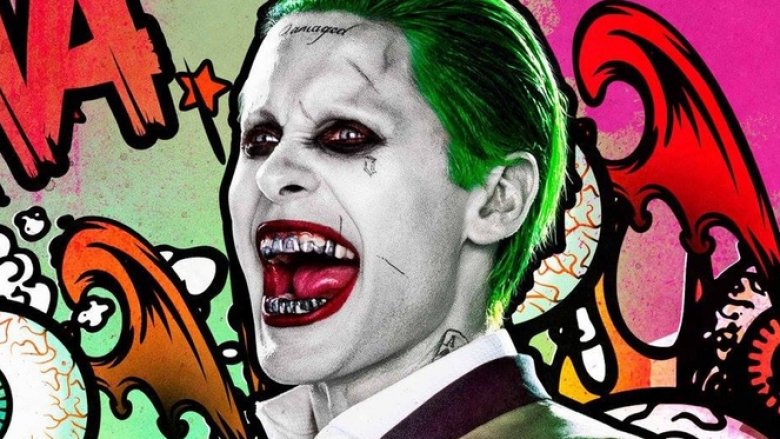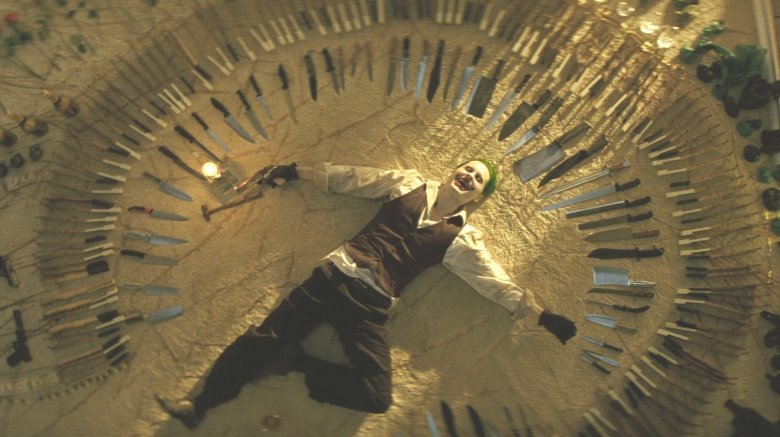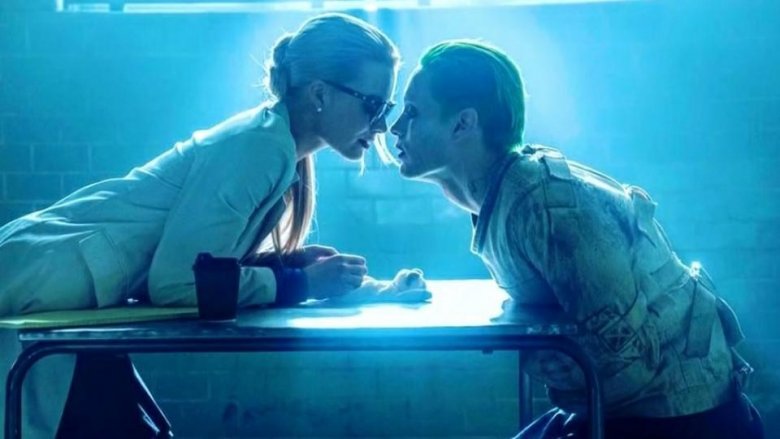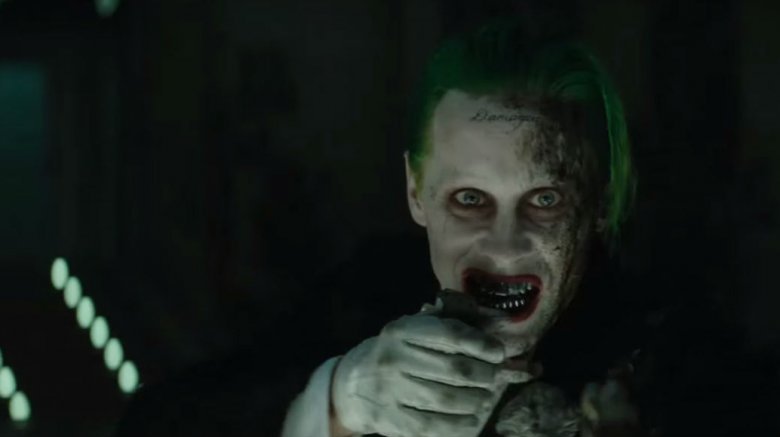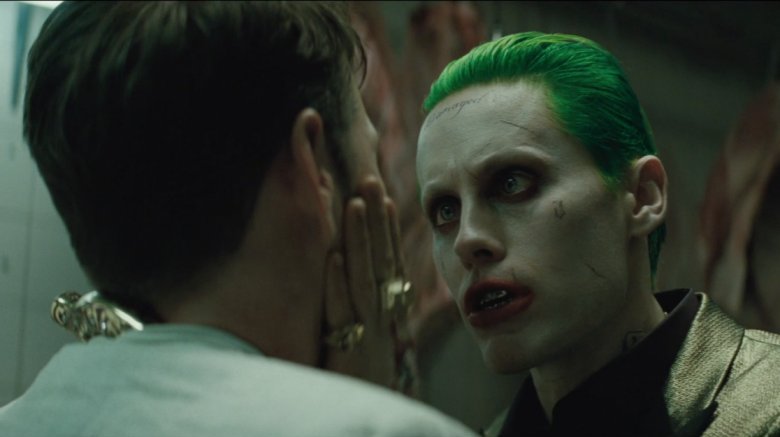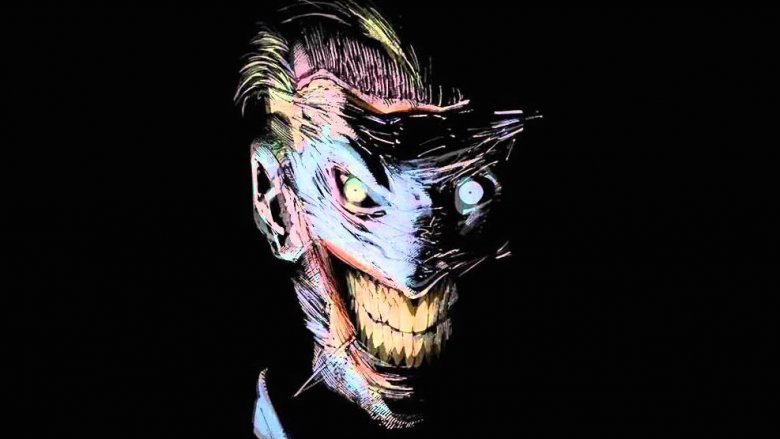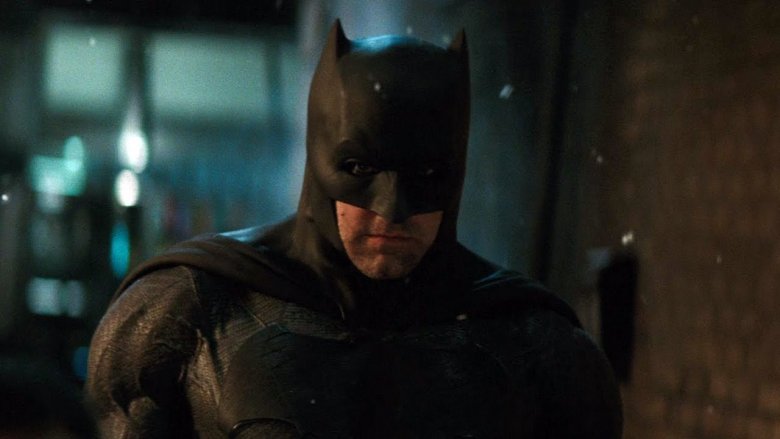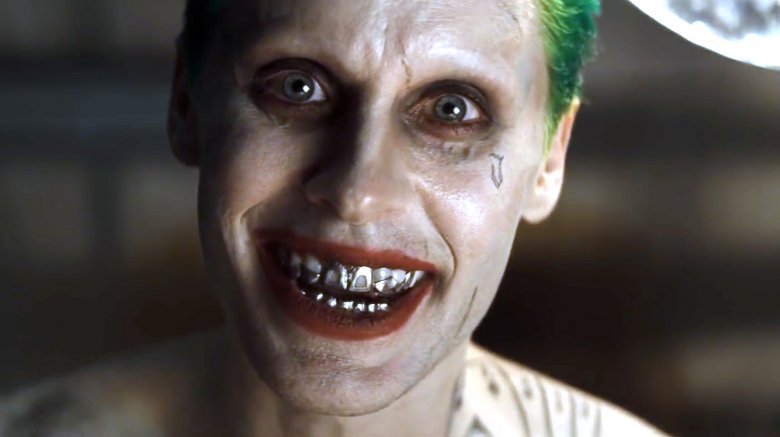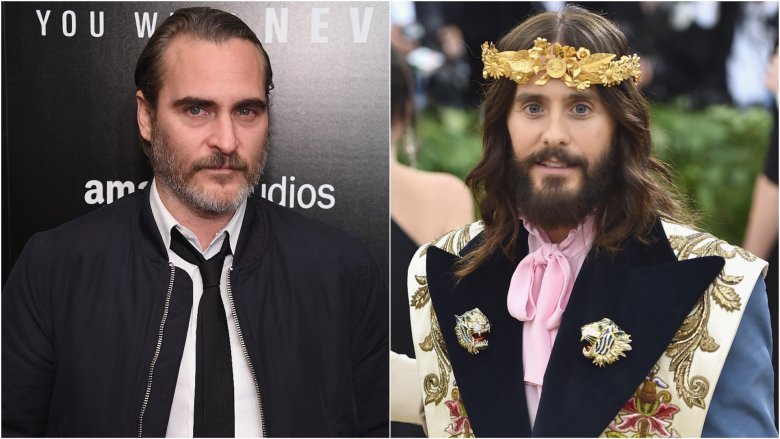How To Fix Jared Leto's Joker
Jared Leto's Joker hasn't been met with the best reception, to put things mildly. Fans of Batman's greatest villain were almost universally floored by Heath Ledger's turn as the clown prince of crime, and many praised previous incarnations of the character, such as Jack Nicholson's and Mark Hamill's, but Leto's version hasn't been given the same love. There's no shortage of reasons why fans and critics don't care for Leto's take on the Joker, it isn't all bad news: in fact, there's a relatively easy fix for every single one of the many complaints lobbied against him. To prove it, we've whipped up this list breaking down, analyzing, and pinpointing all the ways the creative team at Warner Bros. can course correct and take the Joker in a more satisfying direction. From obvious improvements to unexpected remedies, we've rounded up all the best methods the studio has at its disposal to save Jared Leto's Joker.
Don't waste a good joke
The Joker stands tall beside Superman, Batman, and Wonder Woman as one of DC Comics' most recognizable creations. He's got stage power that few members of Batman's rogues' gallery can even dream of. Suicide Squad is a movie all about that rogues' gallery, so it makes sense to use him as the center of the whole thing.
It makes sense to everyone but Warner Bros., anyway. Evidently, they didn't like the idea of DC's biggest, baddest villain at the center of a movie about DC's villains, so they gave that honor to his girlfriend and a dad who's good with firearms. Harley Quinn and Deadshot are great, but they're nowhere near the character Joker is. Opting not to revolve Suicide Squad around him is mind-boggling — something the movie's own director even admitted after the fact.
At the very least, if the studio was dead-set on cramming the Joker into a glorified cameo role, they shouldn't have misled the audience by using him in 99 percent of the film's promotional material. Not cool, Warners. Don't do that again.
Keep Harley close
As dark and ugly as it is, the relationship between Joker and Harley Quinn is a central pillar of both their characters, and an easy and effective way to deliver impactful storytelling. Keeping the characters in close proximity would do wonders for Joker in future DC movies, as he really shines when his fairer half is wreaking havoc alongside him. The two work well together, which is in no small part due to the actors that play them. Leto's Joker has his problems when he's by himself, but in the company of Margot Robbie's Harley, both characters shine. She's the loud, obnoxious, shallow, and overtly playful one, while he's the creepy, sinisterly quiet counterpart who's always got a subtle smirk on his face. Just re-watch Suicide Squad and see how well the Joker and Harley scenes work compared to the rest of the film. The proof's in the puddin': keep Robbie's Harley within an arm's reach of Leto's Joker, and watch the sick and twisted magic happen.
A solo spotlight
The hype surrounding Jared Leto's Joker appearance was out of control in early 2016, before Suicide Squad's release. Stories kept slipping out about how Leto was causing all kinds of chaos and unease on the set with his method acting antics, and it made for great press. Why? Because we all wanted to see this purportedly insane manifestation translate into the best cinematic DC Comics villain of all time.
What we got, however, was a mere handful of scenes — and he never looked like more than a generic villain, intimidating thugs and fetishizing weapons. To make matters worse, Leto's portrayal didn't add anything unique. How could it, given the minimal screentime he got? Maybe, underneath all that cut Joker footage from Suicide Squad, there was a Joker who'd been waiting to subvert our expectations and challenge our thoughts about the character. Maybe Leto just needed more time to win audiences over. Giving him a solo movie to deliver a two-hour tour de force performance could do wonders for gaining the audience's favor.
Spice him up
Leto's Joker, at times, came off as little more than a two-bit gangster in Suicide Squad. This stems from a few issues, most of which have less to do with Leto's performance than with with those responsible for designing his character.
Barring his tuxedo outfit, most of his costumes evoke the image of a sleazy nightclub owner. That lazy design is hardly representative of DC Comics' most unusually chic villain. The same sentiment can be applied towards his tattoos. Seriously, having the word "damaged" plastered across his forehead? Talk about being on the nose.
Then there's his dialogue. Where are the writers who gifted the Joker with phrases such as "this town needs an enema?" and "I'm not a monster, I'm just ahead of the curve"? That's the kind of writing he needs, not lines like "I'm not gonna kill ya. I'm just gonna hurt ya... really, really bad." The Joker is a complex and terribly intelligent character, and needs writers capable of matching his wit.
These two foundational elements, smart visual design and written composition, are key to getting a successful Joker off the ground. Warner Bros. needs a team that can provide Leto with both if they hope to make him an original, fan favorite clown prince of crime.
No more anti-heroics
Suicide Squad wanted to be the anti-Justice League, but ended up turning its "villains" into slightly rude and mildly morally conflicted good guys, and unfortunately, Joker shared much the same fate. While he definitely did the most definitive "bad guy stuff" in Suicide Squad, the fact of the matter is that he spent most of the movie combating a ruthless government bureaucrat while trying to save his girlfriend. In that sense, Suicide Squad somewhat neutered the Joker.
For Leto's villainous character to work, Warner Bros. needs to keep him as an actual villain. He needs to do bad stuff for the heck of it, or for a greater (evil) purpose. If he's saving Harley Quinn, it can't simply be because he loves her so darn much; it needs to be because she has the key to killing Batman in her back pocket and saving her is just a means to an end. Joker's motivations need to be fueled by pure, old-fashioned bad intent, if he's ever going to be the vile onscreen embodiment of criminal insanity that fans have come to love and expect.
Refer to the comics
While it's great that Warner Bros. and Suicide Squad director David Ayer gave Jared Leto the creative freedom to craft his own Joker, that might not have benefited the movie as much as it did Leto's artistic spirit. Leto's take on the psychotic clown seems to be almost entirely of his own design, and very little of his performance pays homage to cinematic Jokers of the past, or to the comics themselves. It's good that he didn't just copy a Nicholson or Ledger performance, but almost all of his predecessors captured some core facet of the character's many comic book personas. Perhaps a good deep dive into the source material would benefit Leto in his attempt to deliver a Joker that people want to see. Heck, he could easily glean some stuff from DC's 2014 Batman "Death in the Family" storyline, which features a Joker who volunteers to have his face cut off. That was a version of the character more in tune with the snake-venom-drenched creep factor that Leto seems to want to channel.
Better competition
Sorry, Suicide Squad, but Amanda Waller is not a worthy foe for the Joker. In order for any Joker to shine, he needs a good foil. We don't love the character himself, after all — we love him as an obstacle to the greater good. The fun isn't in seeing him torture innocent civilians or dismantle society. Though those are part of the appeal, the Joker's real draw is in his ability to draw out the greatest heroes and push them to the point where they either break down or defeat him. He's less a character and more a barometer test of a hero's strength.
In that sense, there's no fun in watching him trample all over Amanda Waller's rinky-dink Suicide Squad plans. We all know he's a step ahead of her at every turn, and there are no stakes in the conflict. However, put the Joker up against someone like Batman, and now there's real competition. Remember how in Nolan's universe, Joker's antics ultimately put Batman out of commission for eight years? Or how Leto's character's history includes killing Robin and creating the cruel Batman we meet in Batman v Superman? We need to see Leto be challenged with a real hero, one who can bring out that level of menace in his Joker, so he can live up to his own backstory.
An Arkham origin
Zack Snyder tried to drop a few nuggets of backstory about this Joker in Batman v Superman, but that's not nearly enough to explain the villain we saw in Suicide Squad. Why is he more of a creepy mobster than a killer clown? Why's he running clubs and driving hot cars more often than he's terrorizing Gotham and making life hell for Batman? If we fleshed out his background, maybe these odd mannerisms of his would make more sense.
We understand fan apprehension toward exploring an iconic and mysterious character's origin, but Leto's Joker isn't mysterious or iconic. He's just some punk who has Margot Robbie for a girlfriend. That's why an origin story for him would be more appropriate than for, say, Heath Ledger's Joker. Ledger's version of the character was a tornado: he came out of nowhere, caused a bunch of chaos, then disappeared. Any additional context would've killed the fun of seeing that wild card eat up Batman's city. However, Leto's Joker is a different, tamer beast, one whose perplexingly underwhelming nature begs an explanation. How did the Joker, of all characters, become this mundane? Maybe an origin story would explain Leto's strange Joker and make him a bit more engaging.
Duel of the clowns
What if Warner Bros. had two cinematic Jokers at the same time?
Could it confuse audiences? Possibly. Could it cause conflict between actors and the studio? Perhaps. Might it end up being more trouble than it's worth? Absolutely, but there's only one way to find out for sure, and Warner Bros. is taking the plunge. Having already cast Leto as their main DCEU Joker, the studio has reportedly decided they need a second Joker, to be played by Joaquin Phoenix. Two great actors, one great role. Who will win? The audience, of course.
We get our choice of Joker, and the studio gets to explore different facets of a fascinatingly complex character who's adopted numerous guises over his lengthy comics run. Each actor who's played the Joker has brought something different, and there's no shortage of material to draw from, so why bother limiting us to one at a time? If there's a comics villain worthy of two actors offering competing takes, it's this one. Who knows how this dual Joker cinematic experiment will pan out? Anything could happen with two versions of DC's greatest villain on the loose.
